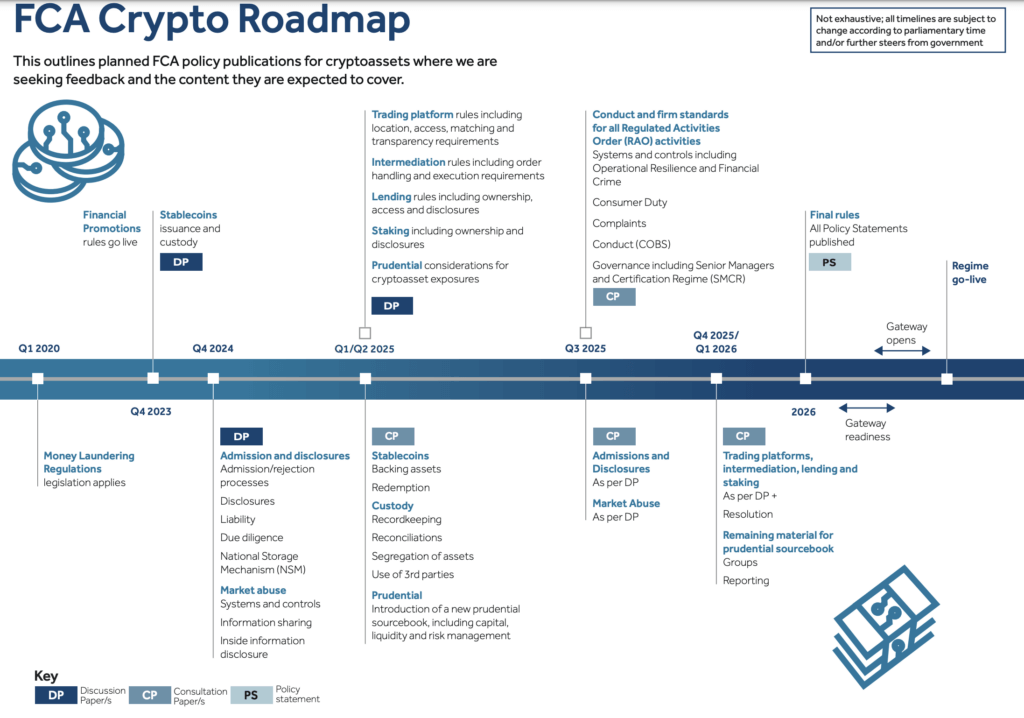FCA to wait till 2026 to launch official crypto policy with 12% of UK owning digital assets
Crypto ownership in the UK has increased to 12% of adults, up from 10%, according to the Financial Conduct Authority’s (FCA) latest research published on Nov. 26. Awareness of cryptocurrencies also grew, reaching 93% of the adult population.
The FCA’s study revealed that the average value of crypto holdings per person rose from £1,595 to £1,842. Family and friends emerged as the most common source of information for those who have never purchased digital assets, while only one in ten buyers admitted to doing no research before investing.
Approximately a third of respondents believed they could file a complaint with the FCA in case of issues, seeking recourse or financial protection. However, digital assets remain largely unregulated in the UK and are considered high-risk; investors are cautioned that they could lose all their money without any regulatory safeguards.
FCA crypto approach hampering progressThe FCA has begun outlining its approach to regulating digital assets, publishing an indicative roadmap of key dates for the development and introduction of the UK’s crypto regulatory regime. The roadmap details a series of focused consultations aimed at fostering transparency and engagement in policy development.
Arun Srivastava, fintech and regulation partner at Paul Hastings, told CryptoSlate
“The UK was in danger of becoming an outlier, with the EU’s MiCA regulation coming into full force at the end of this year and the change in the US Administration in the US heralding a fresh and crypto-friendly approach in the US.
The new rules will materially change the current regulatory framework in the UK, which operates under anti-money laundering legislation focused on financial crime.”
The research also indicated shifts in consumer behavior. More individuals are considering crypto as part of a broader investment portfolio, with influence from friends and family cited as a primary reason for purchase by 20% of participants. The use of long-term savings to buy crypto increased from 19% in 2022 to 26% in 2024, while purchasing with credit cards or overdrafts rose from 6% to 14% over the same period.
The FCA’s analysis suggests that recent events have affected consumer demand for digital assets, including the crypto market crash in 2022, the cost-of-living crisis, criminal charges against CEOs of major exchanges, and rising crypto valuations since the end of 2023.
Notably, 26% of non-crypto users indicated they would be more likely to invest if the market and activities were regulated. The FCA acknowledges that regulation can influence consumer behavior and is considering how to mitigate risks associated with digital assets through its policy work.
FCA crypto roadmap by 2026Per the FCA’s roadmap, the planned regulatory framework for digital assets includes multiple phases spanning from 2023 to 2026. Key milestones involve implementing financial promotion rules, regulating stablecoin issuance and custody, introducing prudential standards, and establishing comprehensive rules for trading platforms, intermediation, lending, and staking.
Matthew Long, director of payments and digital assets at the FCA, stated:
“Our research results highlight the need for clear regulation that supports a safe, competitive, and sustainable crypto sector in the UK. We want to develop a sector that embraces innovation and is underpinned by market integrity and consumer trust.”
 FCA crypto roadmap (Source: FCA)
FCA crypto roadmap (Source: FCA)
Following legislative changes, the FCA has been responsible for regulating digital asset promotions since October 2023. In the first year under this regime, the FCA has issued 1,702 alerts, taken down over 900 scam crypto websites, and removed more than 50 apps to combat illegal promotions targeting UK consumers.
The post FCA to wait till 2026 to launch official crypto policy with 12% of UK owning digital assets appeared first on CryptoSlate.
